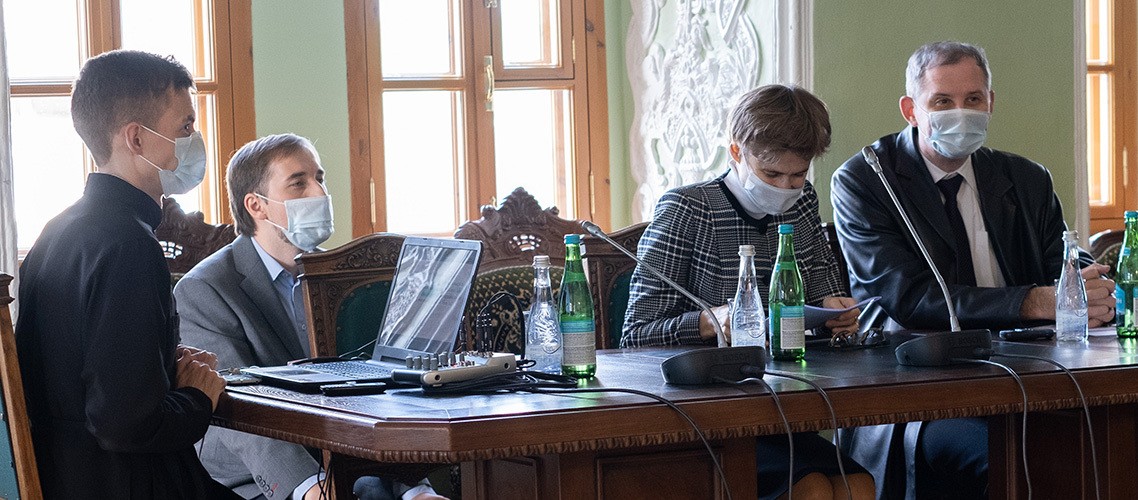
A seminar on classical languages teaching
On September 29 and 30, the Elizabethan Hall of the Moscow Theological Academy hosted a seminar for the community of classical languages teachers. The participants discussed some issues of teaching classical languages in theological educational institutions.
Семинар начался с приветственного слова Председателя Учебного комитета Русской Православной Церкви протоиерея Максима Козлова, которое зачитал Первый заместитель председателя, преподаватель Московской духовной академии протоиерей Михаил Вахрушев.
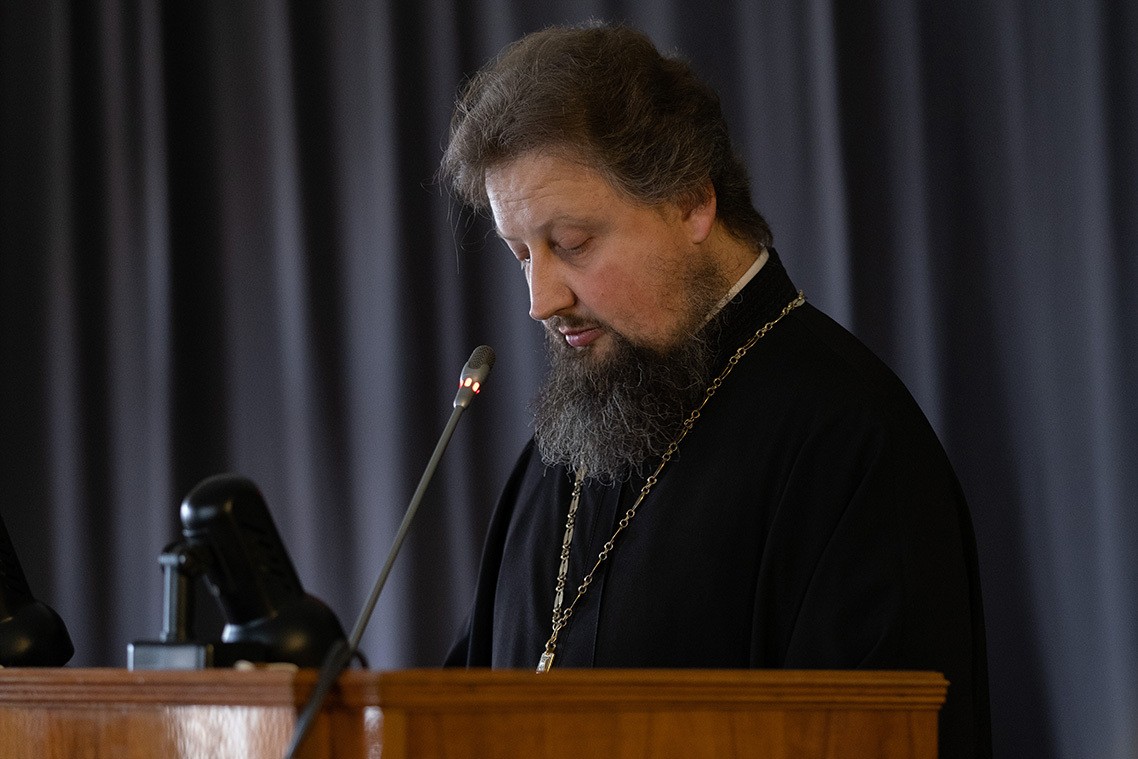
Archpriest Mikhail Vakhrushev, First Deputy Chairman, teacher of the Moscow Theological Academy, opened a session with a welcoming word from and archpriest Maxim Kozlov, Chairman of the Study Committee of the Russian Orthodox Church. In his letter he expressed his gratitude to the Bishop of Zvenigorod Theodorite, MThA Rector, and the whole academic and teaching corporation for an opportunity to hold the conference within the walls of the oldest educational institution
Priest Pavel Lizgunov, MThA Vice-Rector for Academic work, read out the welcoming word from of the Rector of the Moscow Theological Academy. In his letter, Bishop Theodorite pointed out the importance of maintaining educational process and courses such as ancient languages which are vital for all Christians and especially future pastors and theologians.
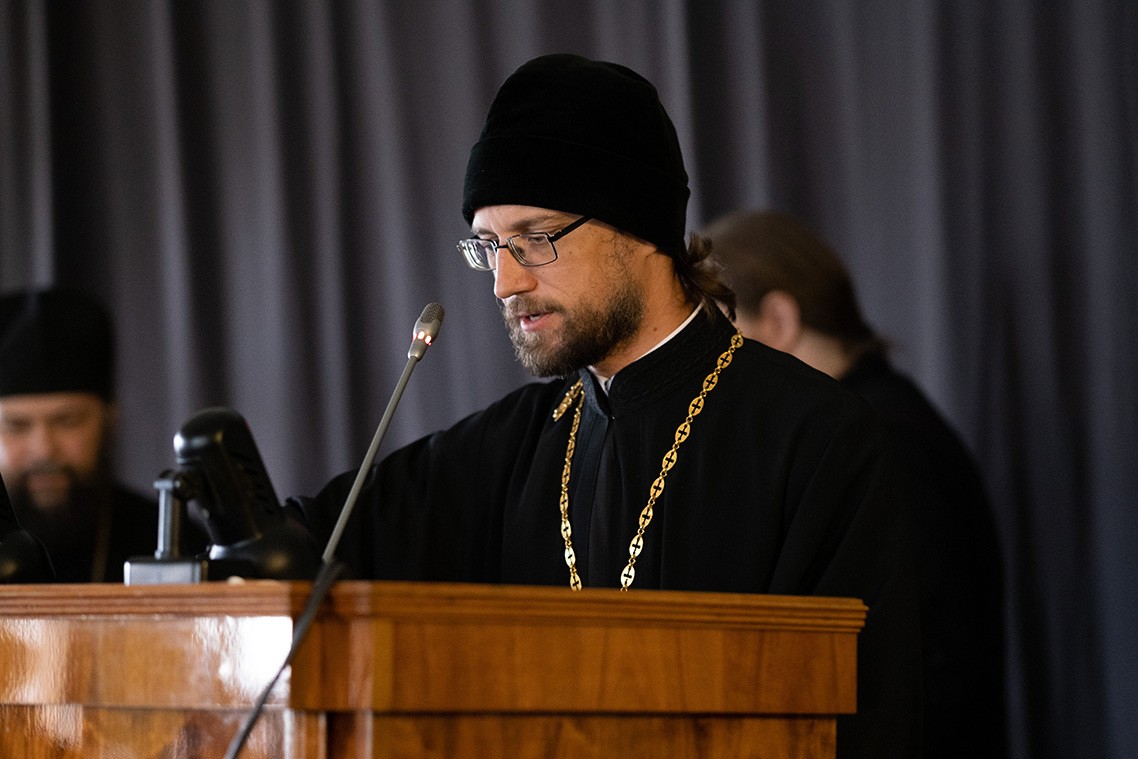
In his greeting word Alexey Solopov, Head of the Department of Classical Philology of the Moscow State University, spoke about the history of the Department of Philology and underlined a successful long-term cooperation between the Moscow State University and the Moscow Theological Academy.

Hegumen Dionisy (Shlenov), Director of the MThA Library, in his presentation of the classical languages teaching program focused on the importance of studying Greek and noted that the Russian Orthodox Church had a task of educating intelligent theologians.
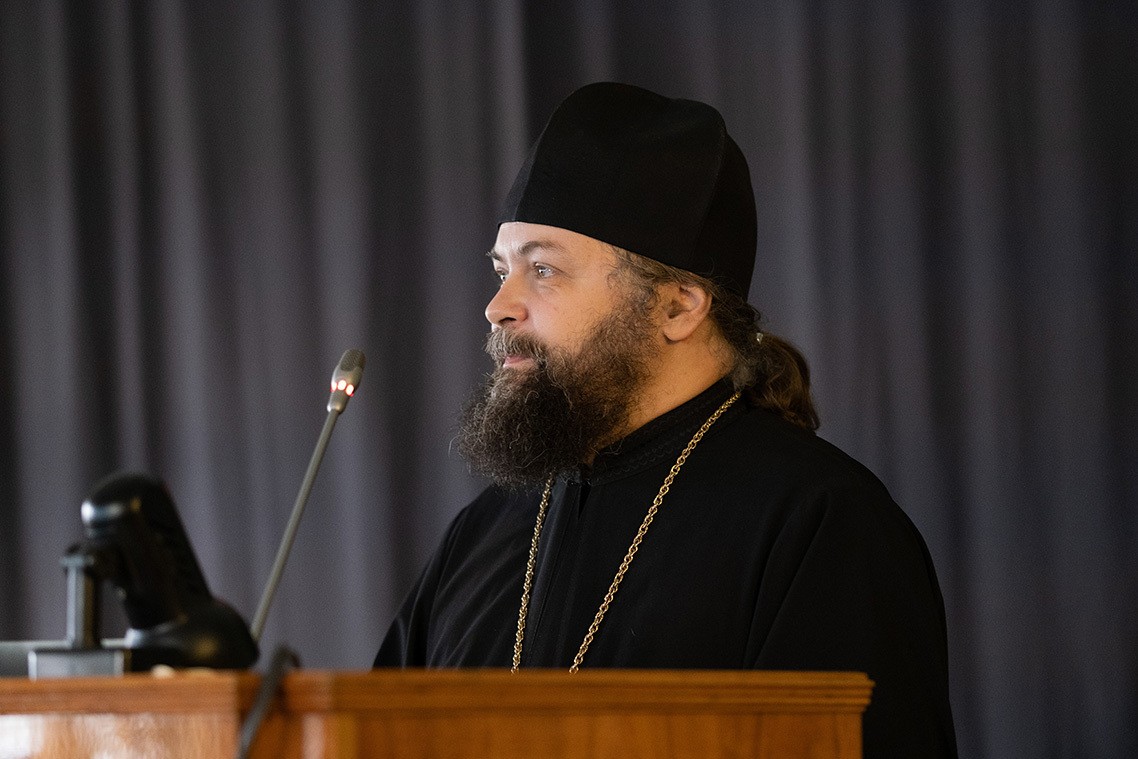
The first day of the conference included the reports of Yu.A. Shichalin, Doctor of Philosophy, MThA Professor; the MThA senior lecturers Hieromonk Tikhon (Zimin), Hieromonk Theodor (Yulaev) and E.V. Tkachev and N.G. Golovnin, a senior lecturer of the Department of Ancient Languages and Ancient Christian Writing (PSTGU). The speakers shared their experience of reading classical and poetic original texts in theological educational institutions, mastering the vocabulary in ancient Greek and discussed some basic skills in reading ancient texts and their interpretations. Hieromonk Theodore (Yulaev) presented a report on "Christological terminology in dialogue with non-Chalcedonian churches: remarks on the Second Agreed Statement of the Mixed Commission."
After a break there was a workshop on "Approaches to reading and analyzing the text in the study of ancient Greek” and a round table on "Ancient Greek in seminaries: achievements and problems."
В завершение первого дня конференции прошел круглый стол на тему «Древнегреческий язык в семинариях: достижения и проблемы».
On the first day of the conference finished with an award of the first-degree medal of Three Saints to Yury Shichalin, Professor of the Moscow Theological Academy.
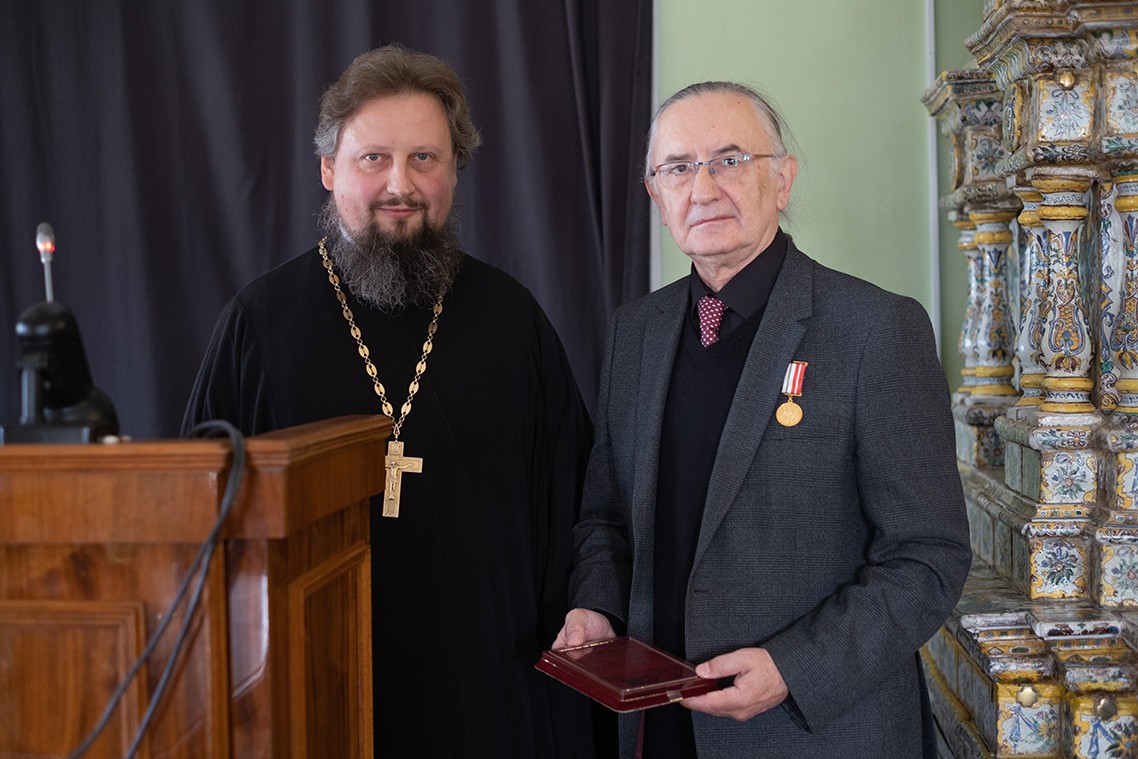
On September 30, the second day of the conference took place. It included the reports on “Greco-Latin anthroponymy in the “Code of Justinian” as a source on the history of the Russian Orthodox name-book” by Alexiy Solopov, Head of the Department of Classical Philology the Moscow State University; “Cicero's speech in defense of the poet Archius” by E.V. Antonets, Associate professor of the philological faculty of the Moscow State University, as well as others by Hegumen Dionisy (Shlenov), Professor of the Moscow Theological Academy and N.A. Kulkov, Head of the Department of Ancient Languages and Ancient Christian Writing (PSTGU). The speakers considered the history of classical languages at the Moscow Theological Academy and some issues of the translations of Holy Scriptures quotations by Latin authors.
After a short break, there was a seminar on "Problems of Translation of Latin Christian Authors of the IV-V centuries: Linguistic and Extralinguistic Factors" and a round table dedicated to ways of teaching Latin in seminaries.
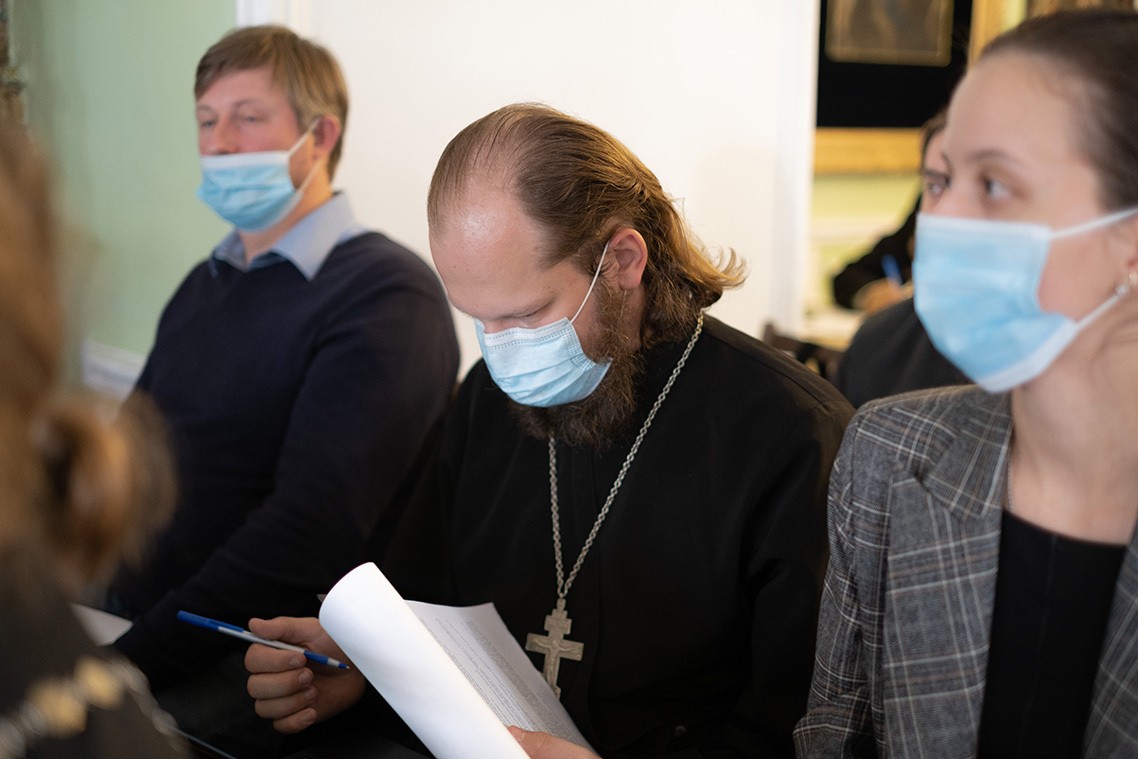
The seminar gathered both in face-to-face and distant formats more than 40 representatives of the theological institutions of the Russian Orthodox Church and Theology departments of state universities.

MThA Press Office
